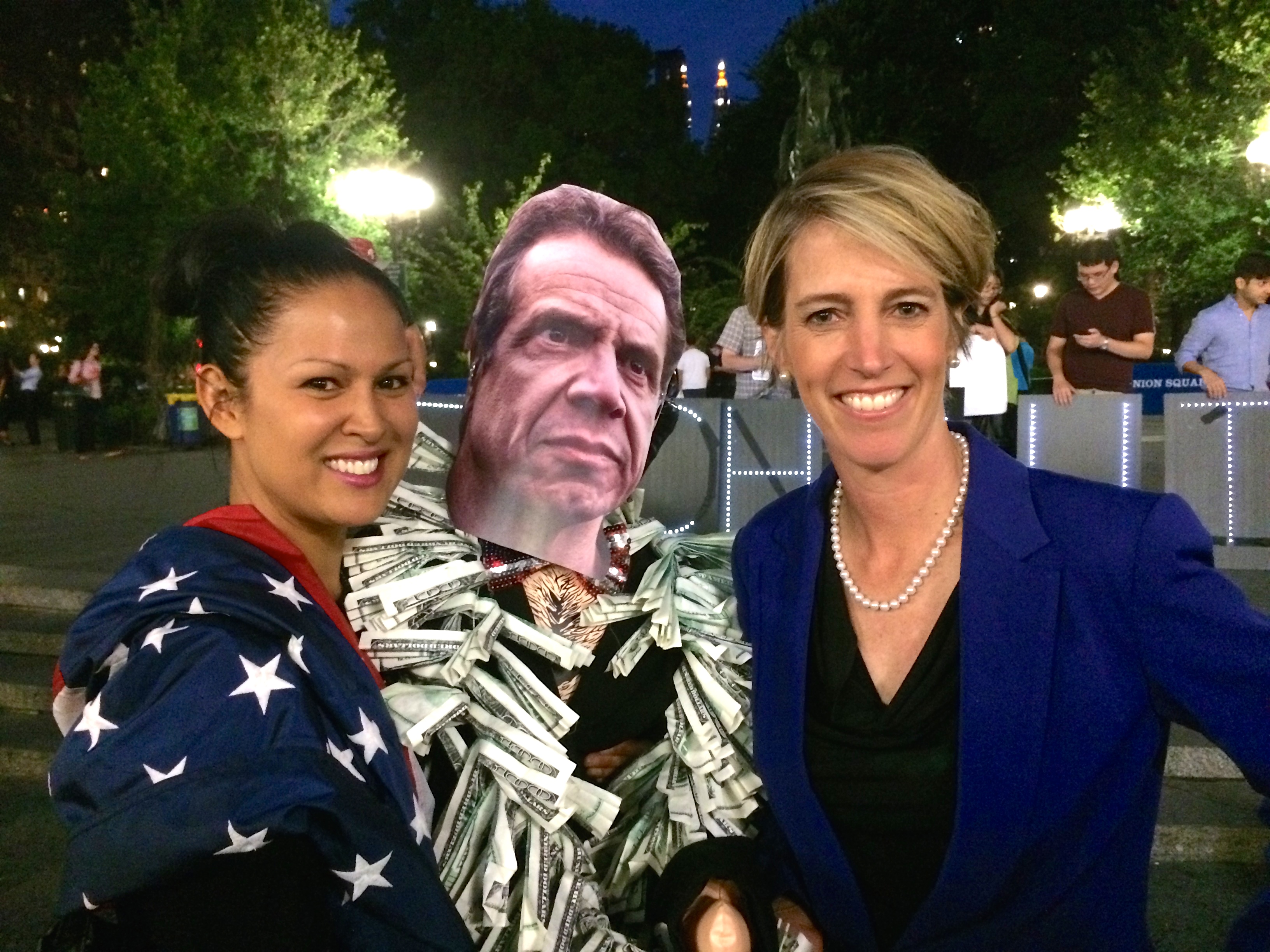
On the third anniversary of Occupy Wall Street, don't be so sure that that the ranting and raving about income inequality, fracking and student debt is dead. Although thousands are no longer protesting in the streets, a quiet revolution inspired by Occupy principles has been brewing in the American public. It demands more from government representatives and was all too present in last week's Democratic primary for the governor for the state of New York.
As one of the 34 percent who voted for Zephyr Teachout and Tim Wu, I am part of the growing constituency demanding change. I am not an environmental fractivist or a disgruntled state employee -- two groups that clearly have a bone to pick with the incumbent governor Andrew Cuomo. I am an Occupier and interested citizen who belongs to a new voting block between 30 to 45 years-old that is normally outside the political establishment. According to independent journalist Matt Stoller, we are the burgeoning "Occupy Bloc," a social-media savvy group of techies, publishers, professionals, and students with energy and ambition to influence the political process. Who knows if we have enough strength to muster political revolt, but one thing is clear: if the mainstream Democratic party cannot show real conviction and take a stand for ordinary people, we will look elsewhere.
Teachout's campaign is an example of this. Her desire to break up the big banks responsible for the 2008 financial crisis, rid the state of monopolies like the Comcast-Time Warner merger and hold officials currently in office accountable for corrupt behavior, was our call to arms. Like Occupy, Teachout advocates examination of the power structures in society to do what really needs to be done: use government to limit the power of Wall Street and corporate America and give regular citizens the opportunity to participate in the political process and create policy.
This is not news to me. As a performance artist for Occupy Wall Street, I have been studying the financial industry since 2011 with the Alternative Banking Group, a close-knit group of academics, bloggers, activists and former Wall Street quants, which meets weekly at Columbia University. I have learned things that should infuriate us all. When I walk past HSBC, I don't see a bank of convenience. I see a for-profit enterprise that admitted to laundering millions for the Mexican drug cartel and terrorist groups linked with al-Qaeda, but paid an insignificant 'cost of doing business' fine in 2012 so no high-level executives would go to jail.
Whenever I'm standing in front of the Federal Reserve near Wall Street, I know that it is not a federal agency but a privately owned central bank retained by the cartel of banks rich enough to belong to the Federal Reserve system. I'm aware that these banks can borrow at a huge discount at 0.75 percent interest, compared to students who pay nearly 5 times that amount on student loans. I would love to attend the World Business Forum in October, but can't since it costs $3,000 a ticket. The elites of this world have gamed the system to make it work for them, a small minority, and they are banking on the fact that most of us will not notice.
Although many believe the days of Franklin D. Roosevelt's trust busting agenda are gone -- something interesting is happening. Three years ago, Occupy Wall Street thrust income inequality onto the national stage. At the same time, bank reform politicians like Elizabeth Warren were elected to Congress. Then in last week's primaries, Teachout did nearly the impossible and won 34 percent of the vote against incumbent governor Andrew Cuomo, who had a $35 million dollar campaign war chest. With little money and no name recognition, she effectively challenged him. She had a clear message the public seems hungry for -- to value regular citizens and their needs in the decision-making process.
The rest is up to us. It's time for ordinary people to become part of the political process and contribute. Be a leader, collectively organize for your rights, become aware of who holds power and get involved. No more standing on the sidelines. Take charge of your destiny, and if you're lucky, you might be taking charge of all of ours.
Marni Halasa, a lawyer, journalist and political performance artist, consults for citizens, unions, community groups and nonprofit organizations on how to stage effective protest and innovative resistance. Contact her at her website, Revolution Is Sexy.
